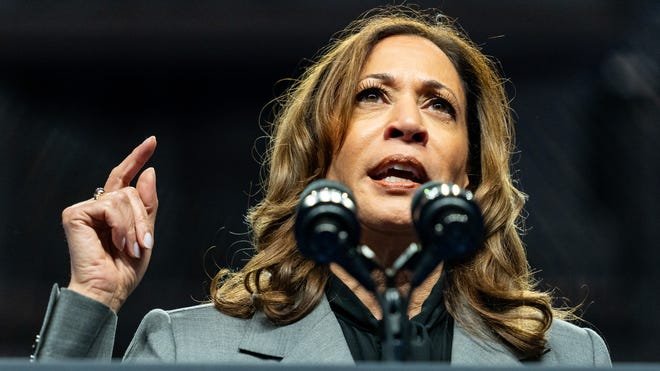I’m a doctor in Milwaukee. Here’s why I will vote for Harris.

Here we go again, another year, another watershed moment for progress on healthcare costs. I wish we could stop doing this, but we can’t; there’s just too much at stake.
Last month marked two years since the Biden-Harris administration’s Inflation Reduction Act became the law of the land. Vice President Harris cast the deciding vote, and President Biden signed it into law. With that stroke of the pen, some of the most common-sense healthcare reforms in a generation became real for millions of Americans.
Today, thanks to the law, Medicare is finally able to negotiate lower prices for the costliest drugs, including medications that treat conditions like diabetes, heart failure, blood clots, and autoimmune disorders. For decades, Big Pharma had spent millions lobbying to prevent the federal government from using their bulk purchasing power to strike a better deal for taxpayers, all while you and I could use that same type of purchasing power at Costco or Sam’s Club. That meant drugs were now in reach for my patients. Medications that could easily prevent visits to the Emergency Department. Medications that could be the difference between life and death.
Kristin Brey:Wisconsin will vote on a referendum question Nov. 5. Like others, it’s confusing.
Having these drugs previously virtually unobtainable didn’t make sense. Ever. But the Biden-Harris team finally got it done in a way that lowers drug costs and reduces the federal deficit. The Inflation Reduction Act also provided other benefits for seniors on Medicare. For example, it capped monthly insulin costs at $35 and offered free recommended vaccines such as shingles, RSV and Tdap.
Moreover, the law established new penalties for drug companies that increase their prices faster than the rate of inflation. Beginning next year, seniors’ drug costs will be capped at $2,000 annually, whereas previously there was no limit on what they had to pay. This will be a game changer for our seniors, especially for those on fixed incomes, as it will help those who have had to choose between their medications and essentials like food or housing.
I assure you that someone in your life is going to benefit from these provisions alone. It may not be your parents or grandparents, but someone you know will see lower costs due to these straightforward Medicare reforms.
When you figure out who it is in your life that’s going to realize that benefit, you might want to let them know that repealing the Inflation Reduction Act is a priority for Republicans in the next Congress if they are in the majority.
Republicans also want to repeal Affordable Care Act
Sound familiar? It should. For years Republicans have waged fight after fight to repeal the Affordable Care Act, also known as Obamacare, which would dismantle protections for pre-existing conditions and throw our health care system into chaos. The Inflation Reduction Act represented another step forward in building on what Obamacare got right. The new law has lowered premium costs for people who buy coverage on their own through the Obamacare marketplace by capping the percentage of your monthly income that can go to your premium. That policy alone is saving people I see in my hospital hundreds, if not thousands, of dollars a month.
The question now is whether we will be able to continue this progress by negotiating more drugs through Medicare over the next year and beyond, or if extreme lawmakers, intent on enacting Project 2025, will undo the progress we’ve made.
I really wish we didn’t have to keep doing this, but the harsh reality is that not a single Republican in Congress voted for the Inflation Reduction Act. Does anyone really believe that if given the chance to repeal it they will just let it be? I wish that were the case, but I am skeptical. We all should be.
Christopher Ford is a board certified emergency medicine physician in Milwaukee and is the host of Pulse Check (Wisconsin), a podcast about emergency medicine and healthcare.

Source link



